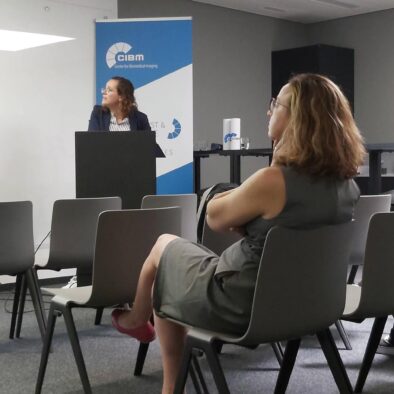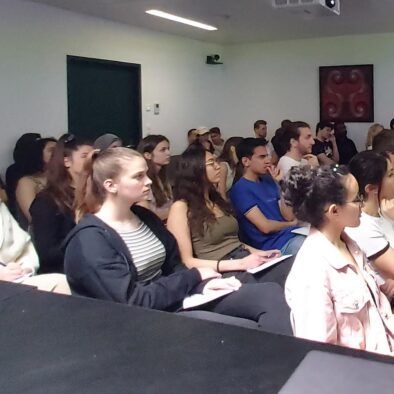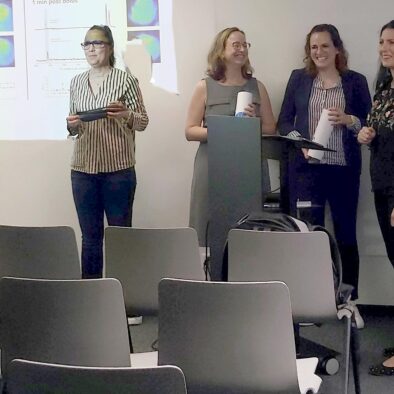
On 30th May 2023, CIBM held its 34th Breakfast & Science Seminar chaired by Dr. Cristina Cudalbu.
 Targeting Brain Tumors in Milliseconds: The Potential of FLASH Radiotherapy to Minimize Side Effects
Targeting Brain Tumors in Milliseconds: The Potential of FLASH Radiotherapy to Minimize Side Effects
Paola Ballesteros Zebadua,
National Institute of Neurology and Neurosurgery, Mexico City, Mexico. Invited professor at the Laboratory of Radioncology CHUV, Lausanne, Switzerland.
Abstract: When it comes to treating central nervous system tumors, radiation therapy can be life-saving. However, the side effects of conventional radiation therapy can be severe, impacting the quality of life long after treatment ends. That’s why the development of FLASH radiotherapy, a new ultra-high dose rate irradiation modality where treatment can last only milliseconds, is so exciting. Animal studies have shown that FLASH-RT induces a remarkable FLASH effect, preserving healthy tissue while maintaining anti-tumor efficacy. Recent pre-clinical results exploring the Flash Effect on the brains of juvenile mice have shown that FLASH-RT not only protects against neurocognitive decrements induced by traditional radiotherapy but also preserves synaptic integrity and long-term potentiation, which are essential for memory and cognition. Additionally, diffusion tensor imaging (DTI) analysis using 14T showed differences after FLASH-RT compared to conventional RT. Furthermore, our tests on orthotopic cerebellar injections of malignant brain tumor cells, both FLASH-RT and conventional radiotherapy were equally effective in controlling tumor growth and increasing survival. These findings suggest that FLASH-RT could be a game-changer in treating brain tumors, potentially preserving efficacy while improving quality of life.
 Novel perspectives on glycolysis: hyperpolarized 13 C MRS, deuterium imaging and PET in joint forces
Novel perspectives on glycolysis: hyperpolarized 13 C MRS, deuterium imaging and PET in joint forces
Mor Mishkovsky,
Researcher at the Laboratory for Functional and Met abolic imaging ( LIFMET), EPFL, Lausanne, Switzerland.
Abstract: Glucose is the principal fuel for the brain, and while it represents about 2% of the body weight 2 0% of whole body glucose utilization will be directed for cerebral metabolism. Dysregulation of glucose metabolism is a key factor in many disorders. Therefore, directly monitoring glycolytic metabolism has the potential to improve the understanding of brain function and dysfunctions.
In this seminar, we will examine magnetic resonance detection of stable isotopes namely hyperpolarized 13 C MRS and deuterium MR, and how they can be implemented for interrogating glycolysis. Technical challenges will be discussed along with the experimental solutions adopted to enable detecting their real time brain metabolism in mice. We will demonstrate the complementarity between the seMR methodological approaches and how they relate to glucose uptake detected with FDG PET.
The monthly meet-up seminar series is a great environment to ask questions or to share insights on challenges and solutions. It’s also a good way to broaden and enrich professional networks.
Revisit past seminars and stay tuned for the next CIBM Breakfast and Science Seminar.




